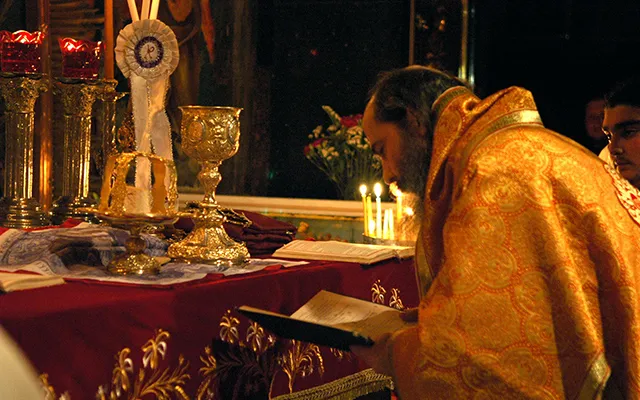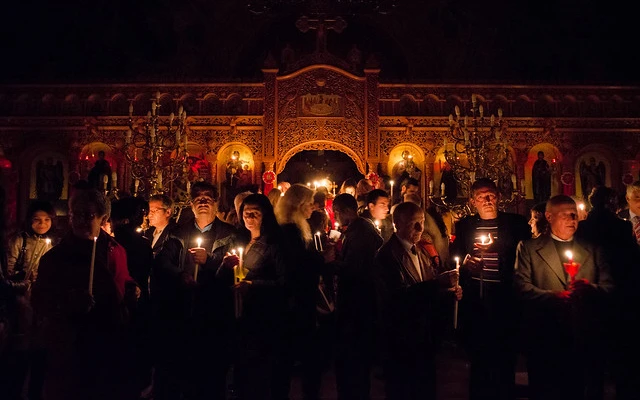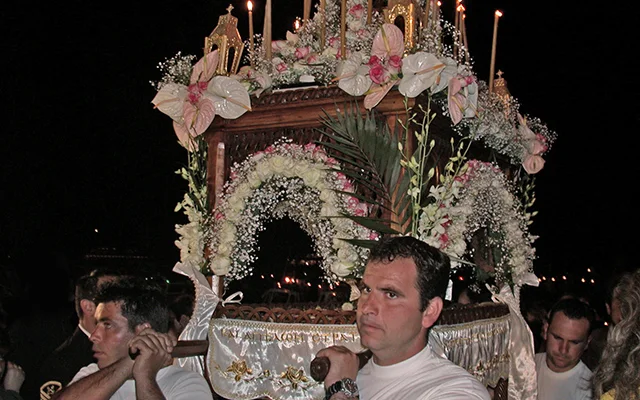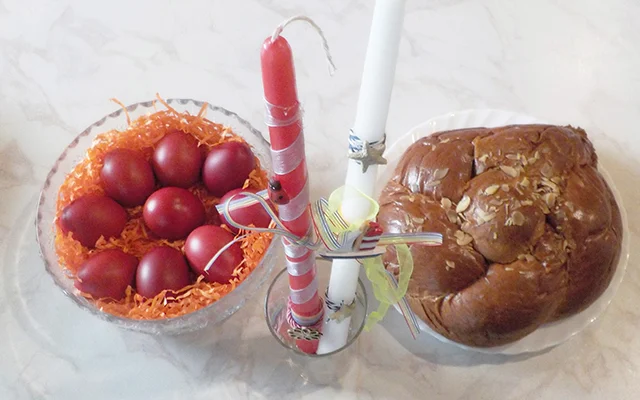Where to celebrate Orthodox Easter in Greece?
Discover the top five destinations to experience a genuine and unique Greek Easter celebration beyond Athens.
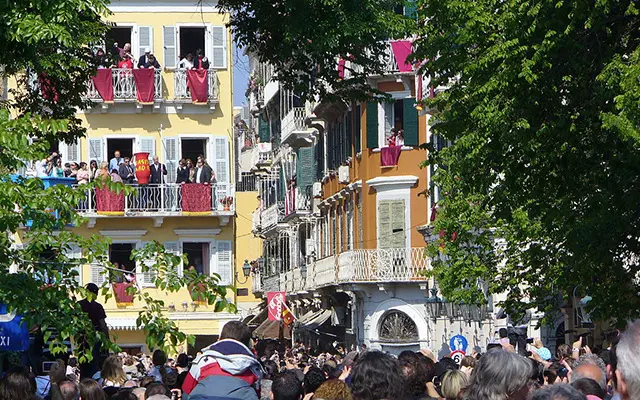
Top 5 destinations during the Greek Orthodox Easter
Apart from the religious and spiritual aspects Pascha is an ideal period for family gathering and trips to the islands or rural areas. Away from the urban environment, someone has the opportunity to enjoy nature and local events. Pascha includes a 5-day official bank holiday in Greece (Great Thursday to Easter Monday) while schools are closed for 2 weeks. Greeks and visitors from all over the world travel to the islands and other smaller cities or villages of the mainland where they observe and participate in events related to the Easter celebration.
Corfu
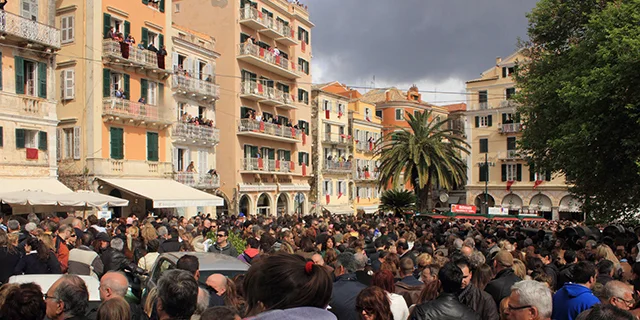
This beautiful island of the Ionian Sea attracts thousands of visitors during the Easter period. The traditions and customs that are followed here have a strong influence from the Venetian era of the island. The 3 philharmonic bands accompany the majority of the processions occurring in the streets of the capital and spread a western renaissance character in the environment. During the Epitafios litany of Great Friday, numerous processions of different parishes are meeting in the central square and other different parts of the city. While the highlight of the celebration comes on the midday of the Great Saturday with the customs of “Mikri Anastasi” (first resurrection) and “Botides”. After the morning divine service, the philharmonic bands parade in the streets of the city and locals throw ceramic pots from balconies and windows. According to scholars, this tradition draws its’ roots either from the Venetian New year’s custom to throw objects from window expecting wealth and luck or from the ancient Greek tradition which was targeting to elevate Persephone from the underworld in order to bring spring.
Patmos
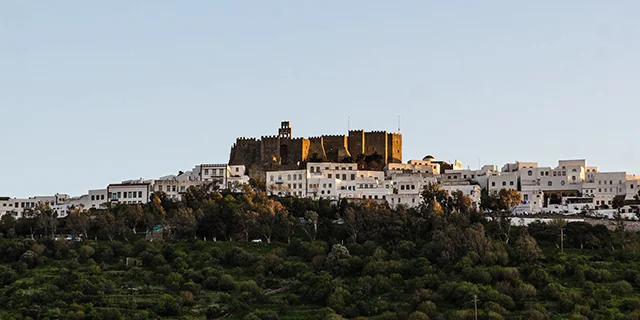
It is really difficult to imagine and describe the mystical feeling of observing the Greek Orthodox Pascha at the biblical island of Patmos. This is the island where St. John the Evangelist wrote the Apocalypse. The dramatic landscape, the stunning monasteries and the 450 churches existing there, construct an atmospheric environment that fits perfectly to the sense of the holiday. Every year thousands of people observe the “Holy Fountain” ceremony that takes place at the central square of Chora. This is performed by the Bishop and twelve monks, commemorating the twelve disciplines’ feet washing by Jesus during the Last Supper. Another highlight occurs on Easter Sunday, during the divine service when the Gospel is read in seven languages as well as at the Homeric hexameter.
Meteora
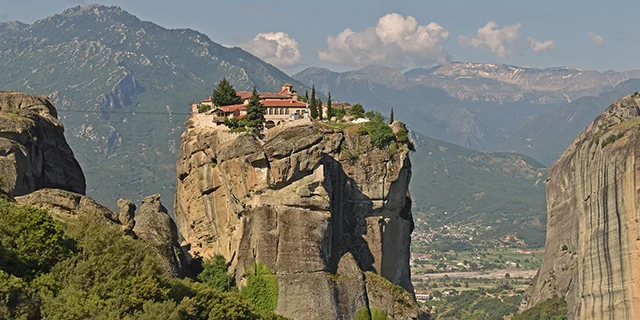
Visiting Meteora during the Greek Orthodox Easter offers a unique opportunity to experience the deeper sense of spirituality of Orthodox faith. It is actually a trip in time since the monasteries of Meteora celebrate Pascha by following the same schedule and rituals that were followed during the Byzantine era. Some Byzantine icons kept in some of the 30 monasteries are exceptional art pieces, while the chance to explore the surrounding stunning scenery adds to the experience. The devout and spiritual atmosphere during Epitafios litanies of Varlaam and Megalo Meteoro monasteries can be characterized as a lifetime experience. After the divine services, people head to the tavernas and the Easter festivities of Kalambaka when they can taste the delicious dishes of roasted lamb and mayiritsa.
Chios
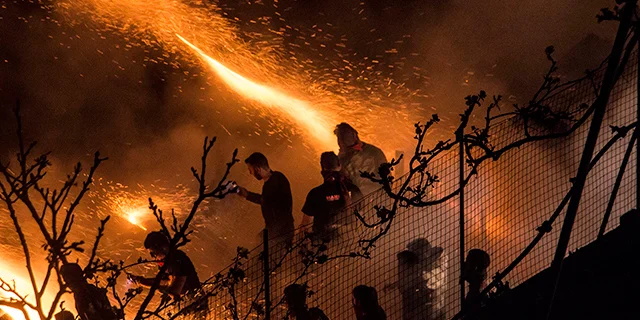
The island of Chios and especially the village of Vrontados offers one of the most unusual spectacles during the Greek Pascha celebration. That derives from a competition existing between the two parishes of the village (Agios Markos and Agia Erithiani). The parishioners construct rocket fireworks during the whole year and at the midnight of Great Saturday, they fire them out targeting the bell-tower of the opposite parish. The result is an impressive show as the rockets leave a bright stripe in the dark sky. During the last years, the authorities put some restrictions on the custom due to safety concerns. It is an event that dates back to the Ottoman occupation and a short debate with the locals shows that regardless of the risks it is very difficult to be abandoned.
Hydra
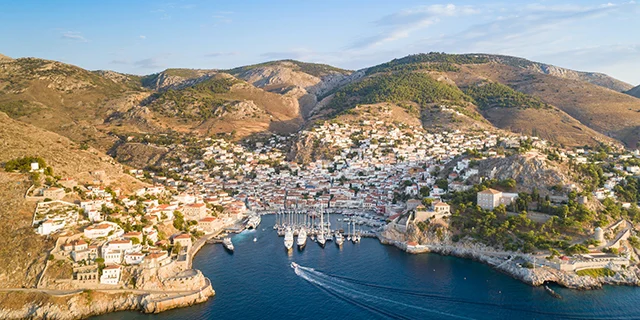
Celebrating Pascha on the picturesque island of Hydra is a special experience on its own as it gives a genuine picture of the devout traditions of the greek countryside. Even if Hydra is only two hours by boat from Piraeus, it is still a place with an atmosphere of the past. The main reason is that on Hydra vehicles are not allowed but the main mean of transport are donkeys. Easter on Hydra has a unique spirit and among the typical customs of celebrating the Greek Pascha, here someone can observe some special ones. On Great Friday many visitors attend the Epitaph procession at the small port of Kaminia where the Epitaph literally enters the sea. According to the tradition and the local view, this is a way of blessing the waters and keep all the trips of the seafarers safe.
A trip to Greece with an alternative perspective
For the vast majority of the potential visitors, Greece is a summer destination where the endless sun, the blue skies, and the crystal clear waters can guarantee the perfect holiday. Others, see the country as a historical destination where the bases of western civilization have been set. Thus, they arrange a trip oriented to the archaeological sites, monuments, and museums. There is no doubt that the above key factors together with the contemporary cultural aspect, the folklore, the beautiful nature and the vivid Mediterranean pace of life construct an attractive all year round destination. But this is not all! Greece can offer some hidden gems and one of these is the spiritual experience.
Explore Greece from a spiritual perspective
Except for its’ roots to antiquity the Greek culture, is highly identified by the relation to the Christian Orthodox faith. Greek was a well-spoken language during Christ’s era, while the New Testament and the Gospels were written in Greek. Christianity became a fundamental element of the Greek culture and nowadays, a series of rituals, customs, and events that are still followed by the communities have a direct relation to the roots of the Christian religion. Having the opportunity to be an observer of those customs and traditions offers a uniquely mystical and spiritual experience. An example of such an event is the celebration of the Greek Orthodox Easter (Pascha).
